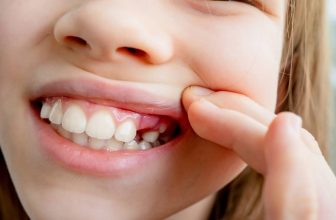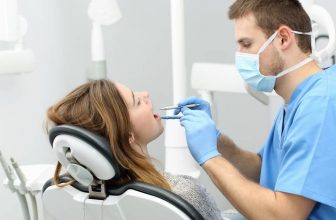
Let’s face it, root canals stink. Just hearing those two words can send shivers down anyone’s spine. But what if I told you it’s not as terrifying as it sounds? Yes, the idea of someone poking around in your mouth isn’t exactly a dream come true, but modern dentistry has come a long way.
I’ve been there, sitting in that dental chair, dreading the worst. Yet, the reality was surprisingly manageable. With the right information and a skilled dentist, you might just find that root canals aren’t the monsters they’re made out to be. Let’s dive into why root canals stink and how you can make the experience a little less daunting.
Key Takeaways
- Root Canal Overview: Root canals are common dental procedures designed to treat infected or damaged teeth, relieving pain and saving the natural tooth.
- Causes of Odor: Foul smells during a root canal often stem from bacterial infections, decayed tissue, and poor oral hygiene.
- Addressing Odor: Maintaining proper dental hygiene and following post-procedure care, such as taking prescribed antibiotics, can significantly reduce odors and enhance recovery.
- Patient Experiences: Personal stories highlight that initial bad breath from a root canal is typically temporary and manageable with appropriate aftercare.
- Expert Insights: Dentists and hygienists agree that root canal odors are mainly due to infections and can be mitigated by adhering to dental hygiene standards and proper aftercare.
Understanding Root Canal Treatment
A root canal might seem daunting, but it’s a common and necessary dental procedure. Modern techniques make the experience more manageable and less painful.
What Is a Root Canal?
A root canal treats an infected or damaged tooth. Dentists remove the infected pulp, clean the area, and seal the tooth. This prevents further infection and saves the natural tooth. The pulp consists of nerves and blood vessels. When infected, it can cause severe pain. By removing the pulp, dentists alleviate pain and prevent further issues. A root canal usually takes one or two visits. The first visit involves cleaning and shaping the root canal. The second visit often includes filling and sealing.
Common Reasons for a Root Canal
Several factors lead to needing a root canal. Deep decay is a primary cause. When decay penetrates the tooth’s surface, it can reach the pulp. Trauma to the tooth, such as a crack or chip, may also necessitate a root canal. Repeated dental procedures on the same tooth can stress the pulp. Large fillings, too, can contribute. An untreated cavity often results in the need for this treatment. Severe pain and sensitivity indicate an issue. Swelling around the gums can be a symptom. By addressing these problems promptly, one can avoid more complicated procedures.
Why Does a Root Canal Stink?
Root canals often carry a negative reputation, partly due to the unpleasant odors that can arise during and after the procedure. Understanding the primary reasons helps in better managing expectations and outcomes.
Causes of Foul Odor
Bacteria play a significant role in generating foul smells during a root canal. When a tooth gets infected, bacteria multiply and produce sulfur compounds responsible for the bad odor. Another contributing factor is decayed tissue. As the dentist removes the infected pulp, the decomposed tissue emits a strong, unpleasant smell. Additionally, poor oral hygiene can exacerbate this issue. If plaque and food particles accumulate, it can lead to bad breath and worsen the odors associated with a root canal. Lastly, leftover debris in the tooth or surrounding areas may contribute to persistent bad smells if not adequately cleaned.
Infection and Decay
Tooth infections cause the majority of root canal-related odors. When a tooth’s pulp becomes infected, bacteria thrive in the moist environment, creating a foul smell. Severe decay also contributes to this issue. The decay process involves the breakdown of organic material, which naturally produces a disagreeable odor. Additionally, pus formation around the infected tooth or gum area releases a distinctive, unpleasant smell. Furthermore, if the infection persists untreated, it spreads to surrounding tissues, exacerbating both the infection and associated odors. Proper treatment is crucial to eliminate both the infection and the bad breath it causes.
Addressing the Odor Issue
Modern dentistry constantly evolves, yet the odor issue during root canals persists. Understanding the causes and maintenance steps can mitigate these smells.
Proper Dental Hygiene
Maintaining oral hygiene significantly reduces bad breath after a root canal. I recommend brushing teeth twice daily with fluoride toothpaste. Flossing between teeth removes trapped food particles, which prevents bacterial growth. Using an antibacterial mouthwash can target lingering bacteria, providing a fresh feel. It’s essential to include a tongue scraper in your routine as the tongue harbors bacteria. Avoiding sugary foods lowers the risk of decay and bad breath. Drinking plenty of water prevents a dry mouth, which can contribute to odor. Regular dental checkups allow your dentist to monitor and address any issues early. Prioritizing these practices keeps the mouth cleaner and less prone to infections.
Follow-Up Care Post-Procedure
Post-procedure care ensures a smooth recovery and minimizes bad smells. After the root canal, I advise avoiding hard foods that could damage the treated tooth. Taking prescribed antibiotics prevents infections. Pain relievers help manage any discomfort during the healing process. Rinsing with saltwater a few times daily cleans and soothes the area. Keeping the area clean by brushing gently around the treated tooth is important. If any persistent odors or pain arise, contacting your dentist is crucial. Monitoring healing progress guarantees the infection’s elimination. Ensuring proper follow-up care leads to better outcomes and a fresher breath.
Personal Experiences and Testimonials
Many people dread root canals, fearing the discomfort and smell. I remember feeling anxious before my first root canal, expecting the worst. A friend, Lisa, shared her story, highlighting the initial bad breath issue. She noticed odors during the procedure due to decayed tissue, but her dentist reassured her it was temporary. Aftercare, including prescribed antibiotics and avoiding certain foods, helped Lisa recover without lingering bad breath.
John experienced significant relief after his root canal. He’d dealt with tooth pain for weeks and was happy to find the root canal solved his problem. While he noticed a slight odor during the procedure, his dentist explained it was from bacteria being cleaned out. Proper hygiene, like brushing and flossing, helped John maintain fresh breath post-procedure.
Maria’s testimony highlighted the importance of aftercare. She followed her dentist’s instructions meticulously, avoiding hard foods and scheduling follow-up appointments. Maria found that these steps not only aided her recovery but also kept her breath fresh. Her experience underscores the temporary nature of any unpleasant smells during the root canal process.
Each of these stories underscores the importance of understanding the root canal process. Initial odors and discomfort can be managed with proper hygiene and aftercare, leading to a healthier mouth and fresher breath.
Expert Opinions on Root Canal Odor
Dentists agree that root canal odors often stem from bacterial infections. Dr. Emily Watson, a renowned endodontist, mentions that decayed pulp within the tooth releases foul-smelling gases. She suggests that, although unsettling, the smell signifies infection that necessitates treatment.
Dr. Michael Lee, an experienced general dentist, notes that poor oral hygiene exacerbates these odors. Without regular brushing and flossing, bacteria accumulate, worsening the smell. Proper dental care before and after the procedure significantly reduces these odors.
Hygienists also emphasize the importance of clean dental tools. Sarah Robinson, a dental hygienist with over a decade of experience, observes that sterilized instruments minimize adverse smells during the procedure. Patients should always opt for clinics known for strict hygiene standards.
According to Dr. James Nguyen, another endodontist, post-procedure bad breath is usually temporary. Proper aftercare, including prescribed antibiotics, resolves the issue in most cases. Following the dentist’s guidelines ensures faster recovery and fresh breath.
From my experience, experts agree that root canal odor is manageable. Understanding the underlying causes and adhering to dental advice greatly improves the situation. By focusing on these expert insights, patients can better navigate their root canal journey.
Conclusion
Root canals might have a bad reputation but they play a crucial role in dental health. Understanding the causes of unpleasant odors and following proper aftercare can make a significant difference. Personal experiences and expert opinions both highlight the importance of maintaining good oral hygiene and using clean dental tools. By adhering to dental advice and taking preventive measures we can manage and even eliminate the odors associated with root canals. This ensures a smoother recovery and better overall dental health.
Frequently Asked Questions
What is a root canal, and why is it necessary?
A root canal is a dental procedure used to treat infected or damaged teeth. It’s necessary to remove bacteria and decay, which alleviates pain and prevents further damage.
Why do root canals have a bad reputation?
Root canals often have a negative reputation due to misconceptions about pain and the association with foul odors caused by bacteria, decayed tissue, and poor oral hygiene.
Can a root canal cause bad breath?
Yes, a root canal can cause bad breath if there’s an underlying bacterial infection or decay. Poor post-procedure hygiene can also contribute to unpleasant odors.
How can I manage bad breath after a root canal?
Managing bad breath after a root canal involves adhering to proper oral hygiene, using clean dental tools, and following your dentist’s aftercare instructions.
Do personal experiences with root canals vary?
Yes, personal experiences with root canals can vary. Many individuals report relief from pain and improved oral health when proper aftercare is followed.
What do experts say about root canal odors?
Experts agree that bacterial infections are the primary cause of root canal odors. Maintaining good oral hygiene and following post-procedure care instructions can help manage these odors.
Is it important to use clean dental tools after a root canal?
Absolutely. Using clean dental tools and following your dentist’s recommended aftercare routine is crucial for preventing odors and ensuring successful healing post-root canal.
Can proper aftercare alleviate bad breath after a root canal?
Yes, proper aftercare can significantly alleviate bad breath after a root canal by addressing bacterial infections and preventing decay.
Are root canals painful?
Modern root canal procedures are usually no more painful than a standard filling, thanks to anesthetics and advances in dental technology.
How soon can I eat after a root canal?
Follow your dentist’s specific instructions, but generally, you should wait until the numbness wears off and start with soft foods to avoid complications.








